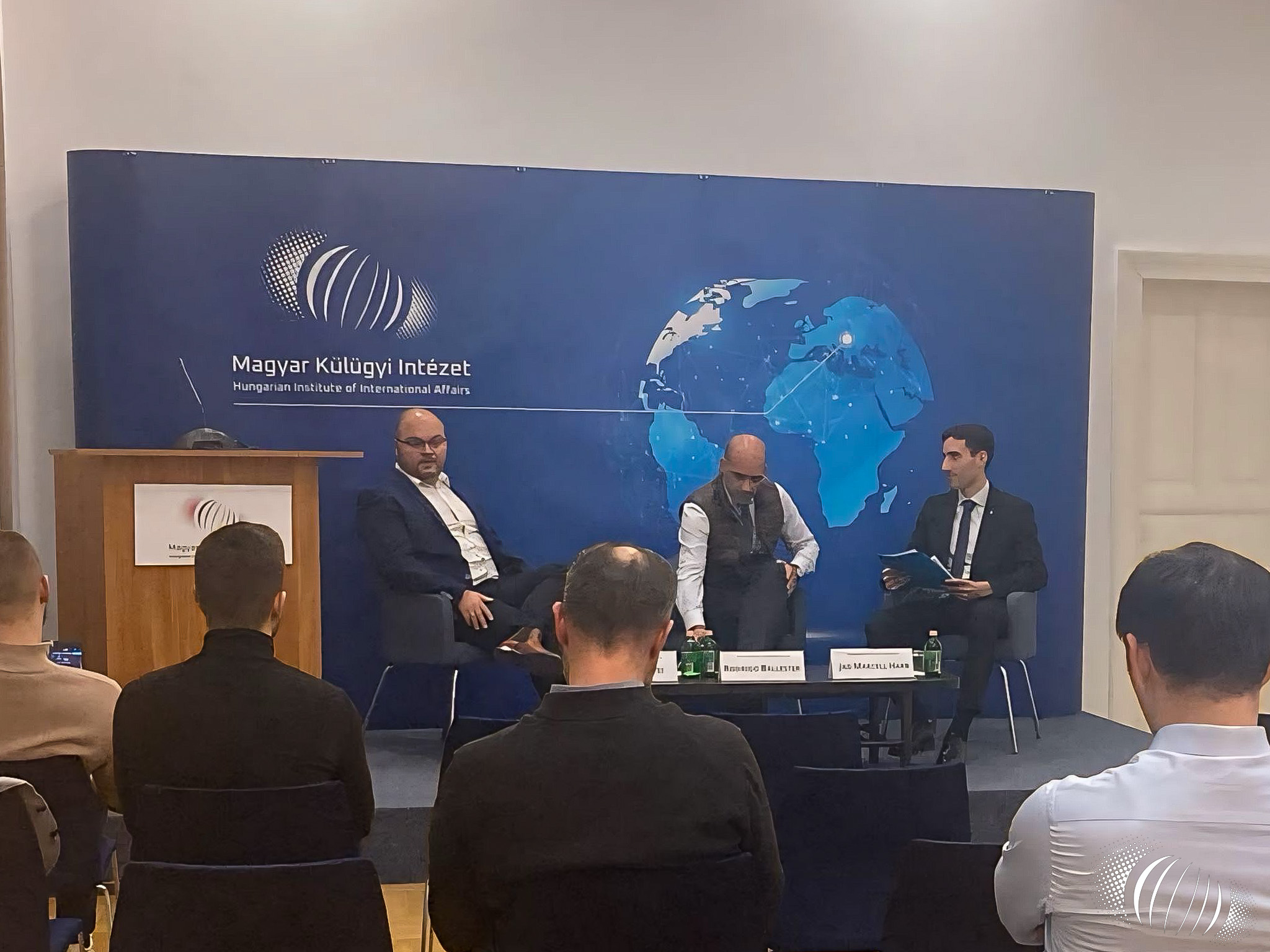The Hungarian Institute of International Affairs (HIIA) held a roundtable discussion titled „What can we expect from the new European Commission?” on 3 December, 2024. The panel discussion featured Rodrigo Ballester, Head of the Center for European Studies in Mathias Corvinus Collegium; Ákos Mernyei, Ambassador for Global Public Diplomacy Engagement and Adviser to the President of Hungarian Institute of International Affairs. The discussion was moderated by Jad Marcell Harb, Research Fellow of HIIA.
Rodrigo Ballester characterized the new European Commission under Ursula von der Leyen as a “one-woman commission,” citing her efforts to consolidate power by excluding experienced, independent figures from her team. Notable omissions include Thierry Breton, who demonstrated integrity and the capacity to act independently during his previous term, and Oliver Várhelyi, who has been marginalized with a weaker portfolio and no vice-presidency role. Instead, von der Leyen has appointed bureaucrat-politicians like Stéphane Séjourné as vice presidents, ensuring her centralized control over the Commission. Ballester emphasized that this Commission will largely be German-led, with a significant number of heads of cabinets coming from Germany. He asserted, “Von der Leyen has nothing to lose in her second term since she cannot be reelected for another term,” predicting she will govern with full authority and focus on securing her legacy.
Regarding the Green Deal, Ballester expressed doubts about its viability, noting widespread opposition across Europe and tangible consequences such as Volkswagen’s decision to close factories. He questioned whether the Commission, which has contributed to bureaucratic overreach, is well-positioned to resolve the economic challenges it has exacerbated.
Ákos Mernyei shared concerns about the Commission’s inefficiencies, emphasizing the lack of creativity caused by entrenched bureaucratic practices. He argued that long-serving officials, often focused on procedural matters, lose their capacity for innovation, which hinders the institution’s ability to rethink major initiatives such as the Green Deal. He called for a systemic shift to bring in fresh perspectives and new ideas.
Mernyei also criticized the overregulation and bureaucratic burden that characterize the current Commission, arguing that addressing these issues should be prioritized over geopolitical matters, such as the war in Ukraine, which he suggested are better suited for European Council discussions. Both speakers stressed that the Commission’s agenda should align more closely with the priorities set by the Council, rather than attempting to dictate its own direction.
The discussion concluded with reflections on Hungary’s 2024 EU Council Presidency. Despite initial skepticism and resistance from Brussels, both panelists agreed that Hungary managed to navigate institutional challenges effectively, showcasing creativity and resilience in its leadership.

